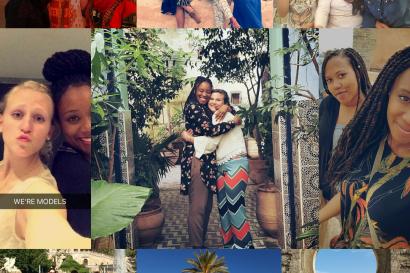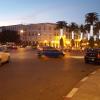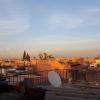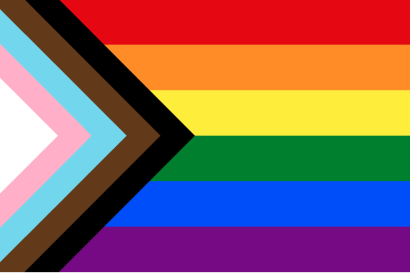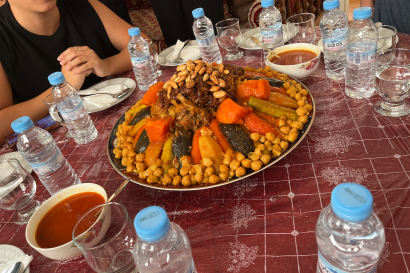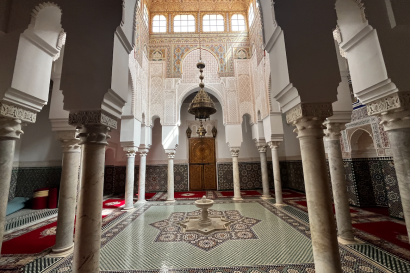Although this is something that has been on my heart since my third day here in Morocco, and especially following the annual debate between Moroccan and American students, I hesitated to share my thoughts. I did not want to let brash, visceral feelings lead to brash words. However, as the semester comes to a close and I enter a mental state of reflection, I believe it would be dishonest to ignore even the unpleasant aspects of my experience in Morocco.
______________________________________________________________________________________________________________
Identity is a beautiful, frustrating thing. As soon as you think you have found a way to understand yourself, you realize how that you don’t fit perfectly within that box.
Am I African? No. Am I African American? Yes. Am I black? Well, my skin is technically brown, but I guess, yes I am… because society says so.
Racism, however, is a terrifying thing . . . because it takes that one superficial part of a whole identity. Black. And uses it as a way to discriminate, subject, and oppress, ALL of a person.
I didn’t expect to be as aware of race in Morocco as I am. Ironically, I am more aware of my race in Morocco than I am in the U.S. Which is mind-blowing! I thought by being in Africa, this would be the easiest place to be Black. But from the first time I heard a strange man call me “Black girl!” or “Sudan Babe!” or “Mama Africa!” or “عزية" Azia (which is a derogatory slur for darker people), I realized that even here I stand out, and I don’t know how safe I feel as a result of that . . .
So, I have done, what I advise all foreigners to do, which is to be aware. I am aware that the daily, extra catcalling I receive from men on the street, (relative to my white friends) comes from the hyper sexualized image of the black female and the low status of Sub-Saharan women in Morocco. I am aware on the Tram. I am aware in the streets. I am even aware at my internship.
Every Monday and Wednesday I commute to Mohammed V University, where I work in the Vice Dean’s Office, basically doing anything the Vice Dean gives to me. My first task was to organize the annual discussion/debate between Moroccan and American university students . . .
What was The Topic, you ask? The irony.
Racism and Colorism in Morocco.
I know the topic seems biased, but it’s not my fault! When planning the discussion and surveying IES Abroad Rabat students for topic choices, I heavily favored sexual education, dating culture, citizen participation, but it appeared that most IES Abroad students—black, white, brown—had noticed the casual racial slurs and cavalier attitude towards discrimination and thought this to be a salient topic. In contrast, most of the Moroccan students, did not; and, that is why most of them didn’t show up.
So, my supervisor, literally pulled in volunteers from off the street to participate.
We began the conversation with 25 Americans and about 8 Moroccans. The first man to voice his opinion was adamant that racism did not exist in Morocco (at least in the way we defined it as Americans); and therefore, he did not answer the first question: How do you define racism in Morocco? A large portion of the discussion was devoted to the Americans and other Moroccans expressing viewpoints of how racism exists, how they experience or see it, and him denying it. I feel because they were so few voices from the Moroccan side, it was hard to counteract that singular, strong viewpoint. He became physically upset in his staunch denial and refusal of racism in Morocco. In the end, we did not come to a consensus as to what Racism in Morocco looks like, or if it even exists at all. Days afterward, while reflecting on the discussion with my supervisor, she told me that she was not upset that his voice was so prominent, because he falls into a large number of Moroccans who believe the same thing.
On one hand, it doesn’t really matter, because the discussion was just a discussion, and eventually, us American students will return to our American lives soon enough.
Yet, when the discussion was over, and we went home to the medina, I and the other students of color were the ones feeling breathlessly confused and diminished because a Moroccan looked us in the eye and told us what we face every day, does not exist. That does strange things to one’s psyche.
The man who followed me around in the medina singing “n*****, n*****, n***** you are a n*****”...did he exist?
The young men circling the cafes, crowding the streets, whispering azia or yelling Black Sudan...do they exist?
The woman who was attacked in Tangier--the African woman--by Moroccans (who are technically other African) men, does she exist?
There is Racism in Morocco.
I won't go as far as saying that Morocco has a problem with racism. That's not my place. But I firmly believe that it IS a problem that some Moroccans are blind to the racism they participate in and/or perpetuate.
To be fair, racism in Morocco is NOT (the same as) racism in United States. It may not be historically systematic, or clearly legislated, as it was in the United States, but it is just as dangerous. I say this, because the refusal of some Moroccans to talk about even the possibility of discrimination (based along racial lines) allows for its continuity in the alleys, the corners, the slums, the medina streets, the shadowy borders.
At the end of the day, I can only see Morocco through the colored tint of my brown eyes . . . I can only experience Morocco in the skin I am in. Therefore, when I remember Morocco, this will be inextricable from my memory. I love Morocco, but I will not diminish my own experiences. Because my own experience is one that resonates with students in my and other study abroad programs, tourists that come here, Sub-Saharans that live here, and that is worth the discussion.
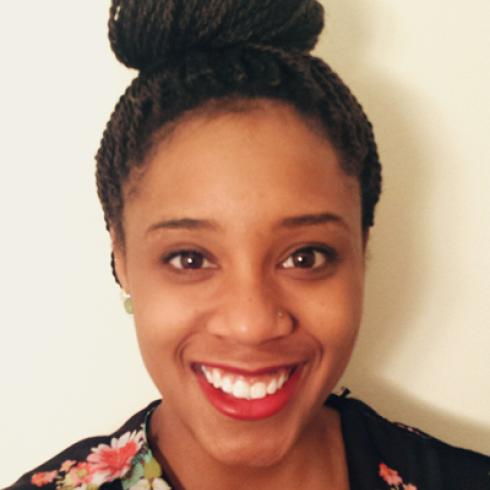
Jada Bullen
<p>I am Junior studying in the School of Foreign Service at Georgetown University. As a feminist by thought and a hipster at heart, I seek every opportunity to break the barriers, disprove the labels, and blur the lines.</p>
